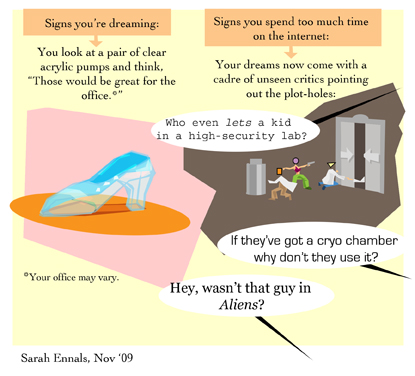Organic computing, anyone? Ars Technica reports on a paper published in Nature, wherein the authors describe the creation of bacterial colonies that can act as logic gates:
The key to the new work is stretches of DNA that act as logical OR and NOR functions. Both of them rely on small stretches of DNA called promoters that control the activity of nearby genes. In this case, the authors used promoters that activate nearby genes in response to simple chemicals (arabinose and tetracycline for these two promoters). By putting both promoters next to a reporter gene, the system acted as an OR gate: when either of the chemicals was present, the reporter was on.
[…]
… the authors set up small clusters of bacterial colonies (small lumps of genetically identical cells). Each colony had a single logic gate (the authors used NOR, OR, and NOT gates). Depending on the arrangement of the colonies, each one could signal to only one or two neighbors, and each could only take input from one or two. The authors demonstrated a functional XOR gate built from four colonies, showing that all logical functions can be built from similar combinations.
The nice thing about using populations of cells is that this averages out some of the chaotic behavior typical of systems based on single cells. At a minimum, the systems they tested showed a five-fold difference between their on and off states. The downside is that, relative to a single cell, these systems are huge. The authors suggest that it might be possible to adapt their system to single cells, but it’s not clear that the same sort of performance could be maintained.
Boole meets biology. Maybe one day we’ll grow computers instead of building them from silicon slices…
 Does Not Equal is a webcomic by Sarah Ennals –
Does Not Equal is a webcomic by Sarah Ennals –  Via Futurismic‘s long-term good buddy Mac Tonnies come the results of an analysis of the UK MoD’s “x-files” documents, recently released to public scrutiny;
Via Futurismic‘s long-term good buddy Mac Tonnies come the results of an analysis of the UK MoD’s “x-files” documents, recently released to public scrutiny;